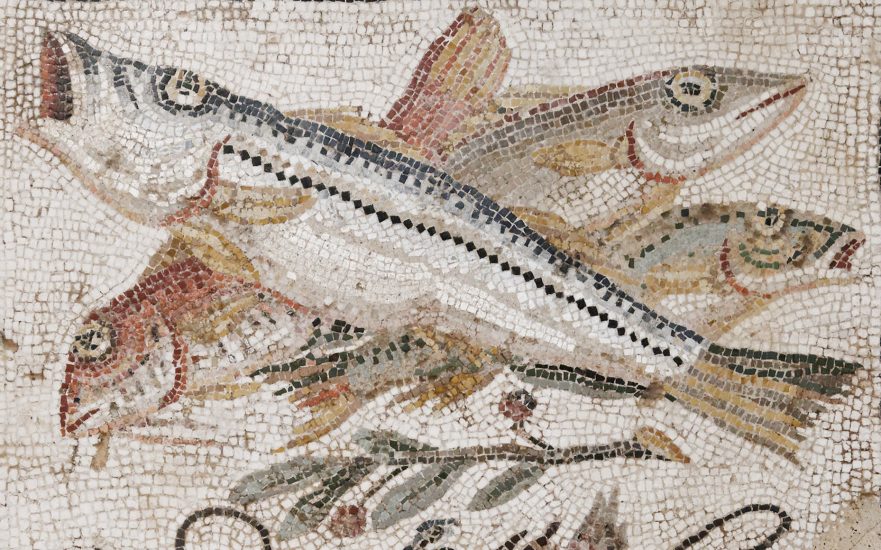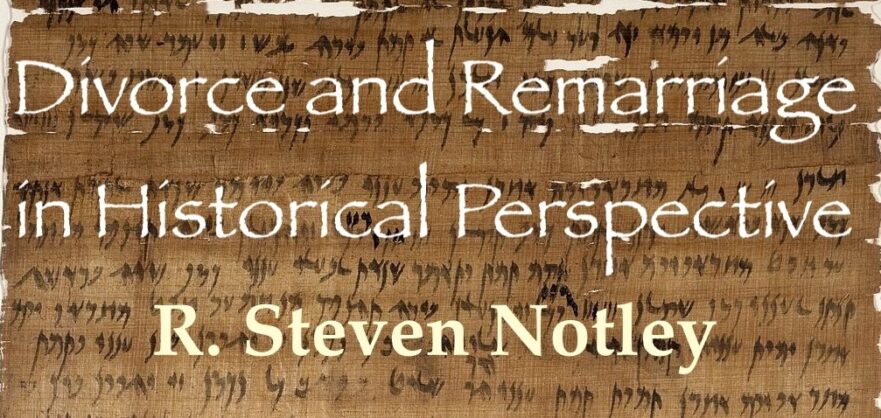This study is dedicated to those who have suffered the agony of divorce. Tragically their pain has been compounded by well-meaning Christians who have distorted both the letter and the spirit of Jesus’ teaching concerning divorce and remarriage. For them, may this article bring a measure of healing.
Blessed Be the “Name”!

We may have misunderstood, or partially misunderstood, many biblical expressions that contain the idiom, “the name of.”
Fishers and Hunters: A Fishy Reading of Jeremiah 16:16

Based on on a “fishy” interpretation of Jeremiah 16:16, some Christians see it as their duty to warn Diaspora Jews of a coming persecution.
The Most Abused Verse in the Bible?

Romans 8:28 has been read as a free-floating logion for years (at least in the American Bible culture), divorced from a context that would, if properly respected, lend it a much more limited meaning.
What Did Jesus Mean by “Do Not Judge”?

Jesus’ teaching on judging is one of his most frequently misunderstood sayings, sounding as if he is saying, “Have no discernment. Just ignore sin!” Often we struggle to find a way to sort out sin without actually calling it that so that we do not judge. While Jesus’ ethical demands are high, we often give up trying to follow them if they do not make sense to us.
The Central Text in the Original Sin Controversy
Diverging views on the doctrine of original sin represent a great chasm fixed between scholars and theologians today.
Casting Down Modern Imaginations
Some scholars have plausibly argued that the Enlightenment’s preoccupation with the problem of knowing was a direct product of the Lutheran and Reformed “theologies of the Word” that emerged from the Reformation…
Romans 11: The Olive Tree’s Root

Paul spoke about Israel as a “cultivated olive tree” whose rootage was in the Patriarchs, particularly Abraham. Some Bible commentators, however, interpreted the root of the olive tree as Christ or his messianic program.
Were the Pharisees “Legalistic”?

If we define legalism as “works righteousness,” then we cannot apply it to the Pharisees, because the Pharisaic understanding of piety was not based upon this concept.
666: One Number or Three?

Any objective reading of Revelation can hardly fail to see the importance of this number within the author’s web of historical signifiers.
No Longer Aliens (and Enemies) of the Commonwealth of Israel!
According to the New Testament, a pagan who becomes a follower of Jesus and enters the Kingdom of Heaven (in conservative Christian parlance, “gets saved”) becomes part of the Commonwealth of Israel.
Beyond an Inheritance

Could it be that the original integrity of Jesus’ message about the Kingdom of Heaven was later compromised by the presence of other expectations of a messianic-eschatological character that circulated promiscuously in early Christian communities?
Being There
One of the strongest impressions I have from my first year in Israel (1963-1964) was taking part in a Passover Seder (the joyous home celebration of Passover). It happened that during this first year in Israel my first contact with the Jewish people took place—there were no Jews living in Cleveland, Oklahoma, where I grew up.
Medieval Jargon on First-century Lips

The following article is an attempt by the author to explain and correct an unfortunate choice of terminology early in his career. That poor choice may have influenced others as they were formulating their own ideas on ancient Jewish hermeneutics. While doing so, they tapped a rather startling source in support of their conclusions.
The New International Jesus

Inaccuracy in translating either through ignorance or because of an obscure manuscript reading is to be expected, but to skew wittingly due to academic bias or religious tendentiousness smirches the reputation of a venerable profession.
We Are the Pots; Jesus Is the Stone!

A reader presupposes his allegorical theology upon the words of Jesus and Joseph Frankovic responds.
From Allegro to Zeitlin

In this article the author explains his view that the output of cheap, pseudo-scholarship has driven legitimate, serious scholarly information from the marketplace of ideas.
“And” or “In order to” Remarry?

Apparently, contrary to normal Greek usage, Greek’s kai (“and”) in the sense of “in order to” occurs in the Synoptic Gospels.

